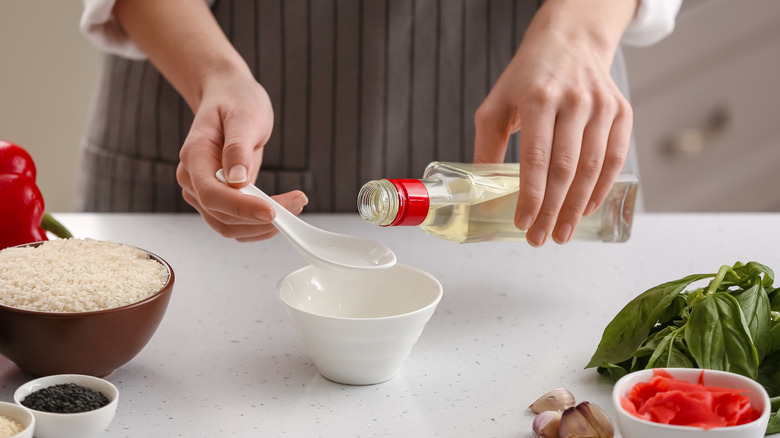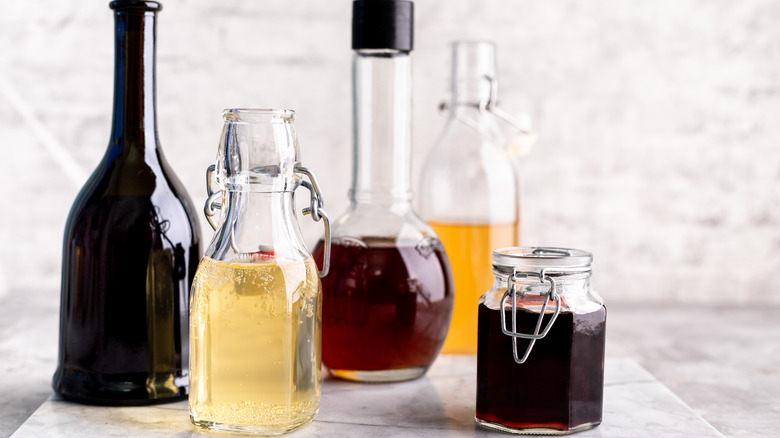There's A Scientific Reason Vinegar Is So Good For Food Flavor
Vinegar is called for in so many recipes that it's potentially one of the most popular elements in cooking, right next to fats like olive oil and butter and seasonings like salt and pepper. It comes in many forms and is used throughout global cuisine. Balsamic vinegar is standard in vinaigrettes, malt vinegar is the signature condiment on the U.K.'s fish and chips, and rice vinegar gives sushi a subtly tart taste. So what makes vinegar so ubiquitous in nearly all food cultures? As Samin Nosrat explains it in her groundbreaking cookbook "Salt, Fat, Acid, Heat," while salt enhances flavors, acid balances them.
The scientific answer for why vinegar is so essential in cooking falls to a couple of things: namely, the brightness that comes from an acidic pH balance, which impacts flavor, and how that acidity triggers chemical reactions that break down the tough textures in meat and fish during prep and cooking.
Understanding vinegar in cooking
Consider a bowl of creamy broccoli and cheddar soup; it's full of fat and umami from the cream and cheese but can feel heavy and even bland on its own. And then, a dash of white vinegar can balance those flavors out. Any food with a pH lower than 7 is considered acidic. Broccoli has a pH of 6.85 and milk clocks in at 6.9, but white vinegar has a pH of 2.5, making all three technically acidic. However, it's important to note that each pH level is about 10 times more acidic than the next, according to Healthline, meaning vinegar is about 10,000 times more acidic than broccoli or milk. This stark difference in acidity helps to counteract the rich, starchy quality of the soup for a more balanced dish.
Another scientific phenomenon to consider when cooking with vinegar is how it impacts the breakdown of proteins. When vinegar first comes into contact with meat, it quickly breaks down proteins, which leads to tender, flaky meat. But if it's left for an extended period, this breakdown process will continue, causing the meat to become mushy and devoid of any bite. So, if you want a piece of juicy grilled salmon, add vinegar to the fish a few minutes before cooking, lest it becomes chewy and dry.

